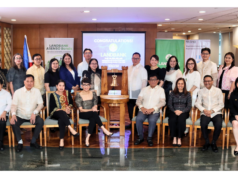(The Christmas sermon of the frustrated reverend, thus turned irreverent, A. Caesar Z. Lacson, printed, updated and reprinted for the nth time)
AT NO other season of the year is unchristian charity more practiced than at Christmastime.
Hordes of do-gooders – politicians, notably – make perfunctory swoops through resettlement sites and evacuation centers, shantytowns and squatter areas bearing an assortment of stomach fillers packaged in Christmas tinsel stamped with their names in big bold letters.
As though the gifts came from their pockets and not from the public coffers they pillaged and plundered or from some contractors they bled dry.
And what gift-giving will be complete, nay, will ever be, without the media pressed to cover the event?
So we’ve been dogmatized from our pre-first communion catechism class that gift-giving took off from the first Christmas example of the three magi whose anonymity – the Good Book did not identify them, remember? – spoke a lot about genuine charity and a lot more about true humility.
Though tradition named them, it did not tell of a gift of gold from Gaspar, myrrh from Melchior, or frankincense from Balthazar.
Tradition travestied now in every gift gilded or etched with titled names, as in smoked ham from the honorable governor, pungent edam from the honorable congressman, crispy Ninoy from the honorable mayor. Honorable oxymorons all, given the dishonorable conduct of Philippine politics and the way they run their dominions.
Rob the country blind the whole year. Give something for the noche buena table of the poor. And all is well with the Lord. Christian living, indeed!
At no other season of the year is poverty more pronounced than at Christmastime. You just can’t escape it. Not in this season of giving when, most naturally, beggars – in all shapes and sizes – go forth and multiply.
There’s the outstretched palm shoved at your face, nearly knocking your caramel macchiato mug as you watch the girls pass by Starbucks at SM City Clark.
There’s the unshod kid tugging at your Lacoste shirt as you line up for baby-back ribs at Rack’s in SM City Pampanga.
Stalled in traffic going to Marquee Mall, there’s the tap at your car window from a tabo-tapping tyke wishing you Merry Christmas.
There’s the unending stream of carolers of all ages in two’s, three’s, singly or in gangs singing thanks for your ten-peso kindness.
There too are the indigenous Aetas descended from Porac’s mountains and the Badjaos way removed from their native Sulu Sea habitat finding their way to your very doorstep, demanding food, clothes, money as though you were the very cause of their deprivation.
A recurring racket I first noted four seasons back: “SEC-registered” religious and civic organizations from Kamuning, Quezon City and Tanay, Rizal going house-to-house in St. Jude Village in the City of San Fernando with letters of solicitation for their “projects for the poor.”
They could have simply saved on their bus, jeepney and tricycle fares and gave them to their poor.
With Ondoy devastating Metro Manila areas two years back, an increase was noted in these metropolis-based “SEC-registered” racketeers knocking on Pampanga doors.
With Sendong demolishing Cagayan de Oro and Iligan but a week ago, expect more of these racketeers hitting Angeles and San Fernando.
The poor do indeed constitute an object lesson for Christmas. But not from the perspective of patronage politics where the poor are shamelessly dehumanized, reduced to utilitarian tools for the politicians’ self-projection for the coming elections.
Neither from the pharisaic (dis)compassion of wannabe Samaritans where mendicancy, rather than liberation from poverty, is instituted.
The poor do really make the leitmotif of the season. Or have we forgotten how the Christ was born? Engrossed as we are in the commercialization of Christmas, we find its reason in the malls rather than in church; we summon its spirit from our pockets rather than from our hearts.
Only yesterday, a beggar knocked at my gate and asked, in a guttural – read: non-Kapampangan – voice, for a little share of the blessings God gave me this year. His jaw dropped when I told him that in his poverty he was more blessed than me.
No, I did not mean that he is spared the trouble of a house and cars to maintain, mortgages to pay, kids to send to school, job pressure, societal demands, etc.
I meant a different kind of blessedness that is inherent in poverty. That is the truly spiritual kind.
Is it just me, or is it still a verity in Christian teaching that poverty liberates? That the poor, unfettered by material – worldly – possession, have so much spiritual wealth that in the end theirs is the kingdom of heaven?
A materially impoverished, and therefore, blessed Christmas to us all.




